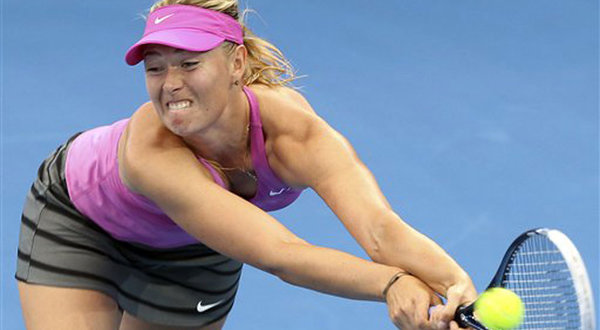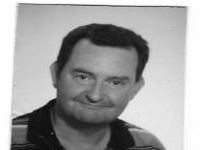Sharapova: Is 26 days a reasonable period of grace?
Maria Sharapova, the world's best-paid sportswoman and tennis superstar for over a decade, has taken responsibility for what should surely have been an issue belonging to her back-room staff, namely keeping track of the substances that athletes can and cannot use. In this case, one she has used for a decade suddenly went on the black list.

What makes a sports star a sports star? Attention to detail, determination, drive, skill, practice and in many cases, using performance enhancers but always on the right side of the rules. These days, when testing has become so accurate that you can test positive for doping if you have eaten the meat of a male pig which has not been castrated the night before, something you take for a cold or a sprain can be discovered to have potential performance-enhancing properties which places it on the wrong side of the law.
A delicate line surely deserves a period of grace over 16 days?
It is a delicate line and a very fine balance and one which takes a lot of monitoring, and one which is almost impossible to monitor when you are traveling around the world, signing contracts, doing press conferences, training, playing tennis and trying to have a private life. So you employ people to monitor these things for you and you trust them to do their job.
In this case, what was not picked up was the fact that Maria Sharapova had been taking meldonium for a decade, legally - but since January it had been added to the illegal substance list by the World Anti-Doping Agency, WADA.
Sharapova did not know
Twenty-six days after the substance suddenly became banned, on 26 January, Maria Sharapova tested positive for meldonium in the Australian Open and a temporary ban pending a panel meeting begins to take effect as from March 12. Surely there should be a period of grace longer than one month for people working at this high level of competition to adjust themselves to situations in which a substance is suddenly declared illegal?Maria Sharapova stated that she did not know meldonium had become an illegal substance, which is quite plausible given that she had taken it without any problems for the last ten years, practically since the beginning of her career. What she was doing, in short, was to follow doctor's orders, taking a substance prescribed to her for long-term medical reasons, and which, once again, had been perfectly legal up until January 1, 2016.
Or was the idea to catch Sharapova as a part of the western Russophobic approach to policymaking? Would anyone be surprised?
Sharapova, currently 28 years of age, the former World Number One, has won all four major Grand Slam titles - Wimbledon in 2004, the US Open (2006) the Australian Open (2008) and the French Open (2012, 2014). She has been runner-up five times (Australian Open - 3, Wimbledon, French Open once each).
Timothy Bancroft-Hinchey
Pravda.Ru
(timothy.hinchey@gmail.com)

*Timothy Bancroft-Hinchey has worked as a correspondent, journalist, deputy editor, editor, chief editor, director, project manager, executive director, partner and owner of printed and online daily, weekly, monthly and yearly publications, TV stations and media groups printed, aired and distributed in Angola, Brazil, Cape Verde, East Timor, Guinea-Bissau, Portugal, Mozambique and São Tomé and Principe Isles; the Russian Foreign Ministry publication Dialog and the Cuban Foreign Ministry Official Publications. He has spent the last two decades in humanitarian projects, connecting communities, working to document and catalog disappearing languages, cultures, traditions, working to network with the LGBT communities helping to set up shelters for abused or frightened victims and as Media Partner with UN Women, working to foster the UN Women project to fight against gender violence and to strive for an end to sexism, racism and homophobia. A Vegan, he is also a Media Partner of Humane Society International, fighting for animal rights. He is Director and Chief Editor of the Portuguese version of Pravda.Ru.
Subscribe to Pravda.Ru Telegram channel, Facebook, RSS!





